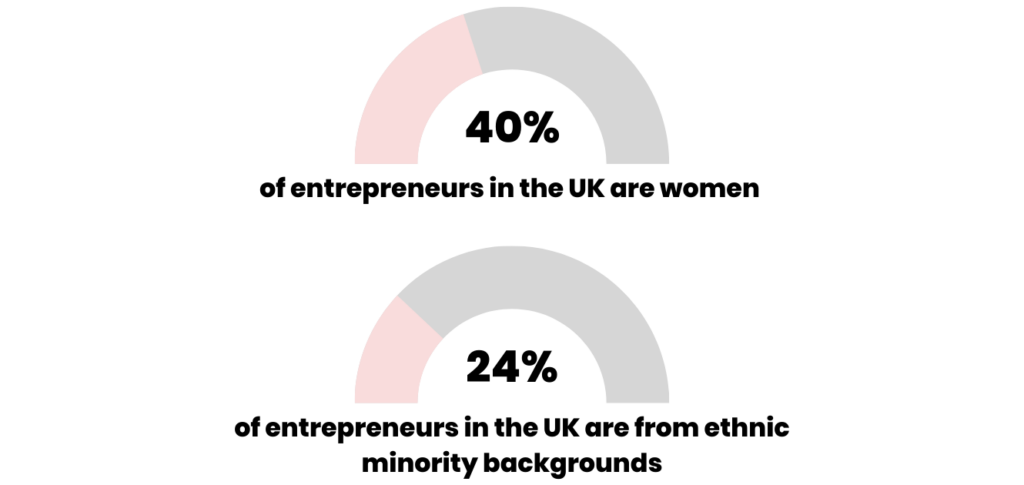

Entrepreneurship, at its core, has always been about solving problems in new and innovative ways. But as the world evolves, so too does the definition of what it takes to succeed. In the rapidly evolving landscape of entrepreneurship, diversity has emerged as a key driver of innovation, resilience, and long-term success. As our world becomes increasingly interconnected, the need for diverse perspectives in entrepreneurship is more pressing than ever.
The Business Case for Diversity
Diversity is not just a moral or ethical imperative; it’s a business one. For entrepreneurs, embracing diversity isn’t about fulfilling a quota. It’s about unlocking a broader range of ideas, perspectives, and opportunities that can drive innovation and success. Studies have shown that entrepreneurs who actively engage with diverse perspectives are more likely to develop unique solutions, make informed decisions, and achieve better financial outcomes. A report by McKinsey & Company found that companies led by entrepreneurs who prioritise gender diversity are 25% more likely to outperform their competitors financially. Similarly, those who value ethnic diversity in their leadership are 36% more likely to see superior financial results.
Businesses that prioritise diversity are not just ticking a box, they’re unlocking new ways to think, create, and innovate. Research consistently shows that diverse teams and companies that embrace different styles of leadership are more innovative and better equipped to solve complex problems. Why? Because diversity brings together different perspectives, which in turn generates creativity and leads to better decision-making. In a start-up environment, where dexterity and innovation are the keys to success, this can be the difference between thriving and surviving. In a world where agility and innovation are critical, the ability to draw on diverse experiences and viewpoints can be the key to sustained success.

Gender Diversity: Breaking Barriers and Driving Success
The conversation around gender diversity in entrepreneurship has gained momentum in recent years, and for good reason. Whilst progress has been made, women, particularly women of colour, remain underrepresented in the entrepreneurial landscape. However, when gender diversity is embraced, the benefits are overt and profound.
Female entrepreneurs often bring different leadership styles and perspectives, which can complement and enhance the dynamics within a team. Research suggests that companies with gender-diverse leadership are more likely to introduce new products and enter new markets. Furthermore, gender-diverse teams tend to be more effective at risk assessment and management, which is critical in the uncertain and fast-paced world of startups.
In the UK, the impact of female entrepreneurs is increasingly significant. Women-led businesses contribute an estimated £85 billion to the UK economy, and there has been a notable increase in the number of women starting their own ventures. Between 2018 and 2020, the number of female entrepreneurs rose by 18%. Despite ongoing challenges, this growth demonstrates the determination and drive that women bring to the business world.
Investing in gender diversity is not only about fairness but also about capitalising on a wealth of untapped potential. By creating an inclusive environment that supports female entrepreneurs, we can unlock new pathways for innovation and economic growth.
Ethnic Diversity: Strengthening Crisis Management and Resilience
In the unpredictable world of entrepreneurship, crises are inevitable. Whether it’s a sudden market shift, a public relations issue, or a global pandemic, the ability to navigate and recover from crises is crucial for the survival and success of any startup. Entrepreneurs with diverse ethnic backgrounds bring a unique set of skills and perspectives that can significantly enhance resilience during unprecedented times.
A report by the Global Entrepreneurship Monitor (GEM) highlights that entrepreneurs from diverse ethnic backgrounds are more likely to identify and pursue opportunities in emerging markets. This ability to capitalise upon new opportunities is particularly valuable during crises when market conditions can shift rapidly. For instance, during the COVID-19 pandemic, many ethnically diverse entrepreneurs successfully pivoted their business models to meet changing consumer needs, perhaps leveraging their deep understanding of different cultural contexts to stay ahead of the curve.
Moreover, a study by the National Bureau of Economic Research (NBER) found that entrepreneurs from an ethnic minority are more likely to operate businesses in sectors that are traditionally underserved or overlooked by mainstream markets. This focus on niche markets not only provides a competitive edge but also builds a strong foundation for resilience, as these entrepreneurs are often better positioned to adapt to shifts in demand and economic downturns.
Entrepreneurs who are ethnically diverse can also be seen to adopt a broader, more inclusive network, which can be a critical asset during a crisis. These networks often include connections across different industries and regions, offering diverse insights and resources that can be utilised in times of need. Whether it’s accessing alternative funding sources, finding new suppliers, or gaining insights into market trends, these connections can make a significant difference in a venture’s ability to navigate challenges effectively.
Ethnically diverse entrepreneurs have been seen to turn potential obstacles into opportunities, driving their ventures forwards, even in the face of adversity. This diversity of thought, experience, and perspective not only enhances crisis management but also lays the groundwork for long term success in an ever changing global market.
Breaking Down Barriers to Diversity
Despite the clear benefits, barriers to diversity in entrepreneurship remain stubbornly persistent. Systemic biases, unequal access to capital, and the lack of inclusive networks are just a few of the challenges that underrepresented entrepreneurs face. However, these barriers are not impassable. Here are some insights into how diverse entrepreneurs can be supported and uplifted by society:
1. Mentorship and Inclusive Networks:
Building connections is critical. Inclusive mentorship programs can provide diverse entrepreneurs with the guidance and support they need to navigate the challenges of starting and growing a business. Networks that actively promote diversity can also help break down the barriers that often isolate underrepresented entrepreneurs.
2. Access to Capital:
Financial inclusion is key. Investors have a crucial role to play in promoting diversity by ensuring that funding is accessible to all entrepreneurs, regardless of their background. This isn’t just about fairness – it’s about recognising the untapped potential that diverse entrepreneurs bring to the table.
3. Fostering an Inclusive Culture:
Finally, creating an inclusive culture within start-ups is essential. This means not only hiring diverse talent but also creating an environment where all team members feel valued, supported, and empowered to contribute their best work. It’s about building a culture of respect, collaboration, and continuous learning.
The Road Ahead
The business landscape is changing, and diversity is at the heart of this transformation. Entrepreneurs who embrace diversity – whether in culture, gender, age, or experience, are better positioned to innovate, grow, and succeed in an increasingly complex world. But more than that, they are helping to shape a future where entrepreneurship is not just the domain of a few but a space where everyone has the opportunity to thrive.
As we navigate this new era of entrepreneurship, one thing is clear: diversity is not just a trend. It is a powerful driver of innovation, growth, and success, and for those who are willing to embrace it, the rewards are boundless.


